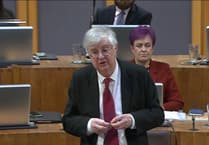Welsh Government investment in the Warm Homes Programme is nowhere near what is required to tackle fuel poverty, according to a Senedd Committee.
The Equality and Social Justice Committee’s inquiry heard evidence that at the current rate, improving the energy efficiency of all fuel poor households in Wales would take more than a century, with a completion date around 2160.
While energy costs have risen to unprecedented levels, real-terms spending on the Warm Homes Programme, which includes schemes to install insulation and low carbon heating measures like solar panels, has remained broadly flat since 2021.
In its report, ‘Turning up the Heat’ the Committee calls for the Welsh Government to commit to ensuring that any additional funding that becomes available goes towards tackling fuel poverty.
Jenny Rathbone MS, Chair of the Equality and Social Justice Committee, said: “The cost of energy from fossil fuels keep rising, which makes the need to tackle fuel poverty imperative.
“Frustratingly, this has not been reflected in the Welsh Government’s efforts, leaving a devastating impact on those who can least afford it. Instead we’ve seen a pattern of delays and missed deadlines.
“It is hard to disagree with the experts: the level of investment in the Warm Homes Programme is nowhere near what is required to match the scale of the challenge of ending fuel poverty.”
Written evidence to the Committee highlighted the Welsh Government’s expectation that roughly 11,500 homes would receive adaptations over a seven year period.
At that pace work to reach all fuel poor households in Wales would not be completed until the year 2160.
The report recommends that the Welsh Government commits any additional funding, including any underspends or Barnett consequential arising from UK Government funding towards tackling fuel poverty in England, is invested in the Warm Homes Programme.




